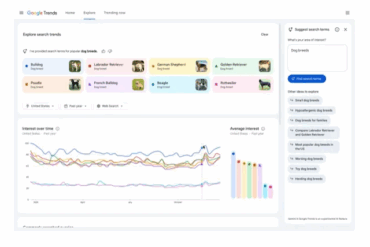By Kylie Smith & Edited By Chris Kissell
Noticing these red flags can save you from a disappointing job change.
You’ve finally scored an interview with your dream company and couldn’t be more excited.
But as visions of making more money dance through your head, you might find that the interviewer has some strange questions to ask.
It sounds bizarre, but some companies ask off-the-wall questions when interviewing potential employees. But is a weird question a red flag, or does it mean you’ve found a fun, quirky company?
You can decide as you dive into the following list of some of the oddest interview questions.
1. If you were an animal, what would you be and why?
Asking you to compare yourself to something else can help an interviewer get a read on your personality. For instance, are you more of a dog person (friendly and collaborative) or a cat person (happiest working on your own)?
It might also be a fun, low-stakes question that helps set a more casual tone for the interview. This odd question is more common than most, and it doesn’t scream “run” too loudly for some folks.
But others might start looking for the exit. If the company is already acting weird during the interview, what kind of weirdness will reveal itself once you start working there?
2. Which superhero do you most want to be and why?
This question — or any variation on it, like which “Star Wars” character you want to be — invites an answer that can show the interviewer how you think about yourself, or what your strengths and weaknesses are.
Pop culture questions can be fun or annoying, depending on your point of view. They aren’t always red flags, although how your interviewer responds if you reveal your preference for DC over Marvel could be.
3. What’s the weirdest thing that’s ever happened to you?
This could be an innocent question, and maybe you have an interesting story that keeps your interviewer entertained for a few minutes.
But if the interviewer is harping on about your childhood or probing for personal details, beware. This company is stepping into your personal life, and that probably won’t change once you’re hired. If that bothers you, bolt.
4. What would you do with $1 million?
How you answer this question can reveal something about your values. Would you invest in the McMansion of your dreams, travel the world, or donate to charity?
Hopefully, you pick the answer most in line with your interviewer’s values. Or, if you feel like the interviewer is prying too much, you’re probably wasting your time with this company.
5. If you were a brand, what would be your motto?
According to reports, interviewers for Boston Consulting Group asked the question above. You can think of it as a spin on a more typical question like, “What are your strengths?” Or “What are you the most proud of in your work life?”
It’s not the best question, but it’s far from the worst. This might not be a red flag if you’re applying at an ad agency or public relations company. But for other types of jobs, this question might be just annoying enough to send you back to the “help wanted” ads.
6. Red or yellow?
This question — or a variation like “Purple or pink?” — is completely open-ended, so bring whatever energy you want to the table here. Strict “this or that” questions don’t give an interviewer much information about you.
An interviewer asking you one offhand question like this isn’t a warning sign. But if you’re only getting arbitrary questions with no obvious link to your work experience, you might want to look elsewhere.
7. If a train leaves Busan at 12 p.m. going 60 mph and another train leaves Seoul at 1 a.m. going 47 mph …
Unless you’re a mathematician or train engineer, you shouldn’t be answering complicated story problems in an interview.
Depending on the job, it might be fair to ask you to show an ability to think on your feet. But again, unless you’re a walking calculator, you can’t come up with the right answer to a question like this off the top of your head.
A company that wants you to do so needs an expectation reset.
8. Do you think I’m a good interviewer?
If you’re asked this question, it’s time to stand up and sprint for the nearest exit.
We’ll make an exception if you’re interviewing for the position of interviewer. Otherwise, this one’s a hard pass.
9. What is your biggest weakness?
This question isn’t an unusual one: It’s simply a bad question with no good answer.
If you say you don’t have any weaknesses, you sound egotistical. On the other hand, if you can’t stop talking about your main problems, you run the risk of making yourself sound like a bad hiring choice.
If your interviewer asks about your weaknesses, feel free to be honest while using specific examples of how you’ve overcome such shortcomings in previous jobs. But definitely weigh whether you would be happy working for a company that asks you to outline flaws before it hires you.
10. What would your current manager say about you?
Far too many companies ask this question, so it’s not necessarily odd. However, it is unfair.
You can’t evaluate yourself from another person’s perspective, which is why companies ask for references.
Additionally, people often leave jobs because they don’t get along with their manager. How are you supposed to evaluate yourself from the perspective of someone who doesn’t like you, or who you don’t like?





